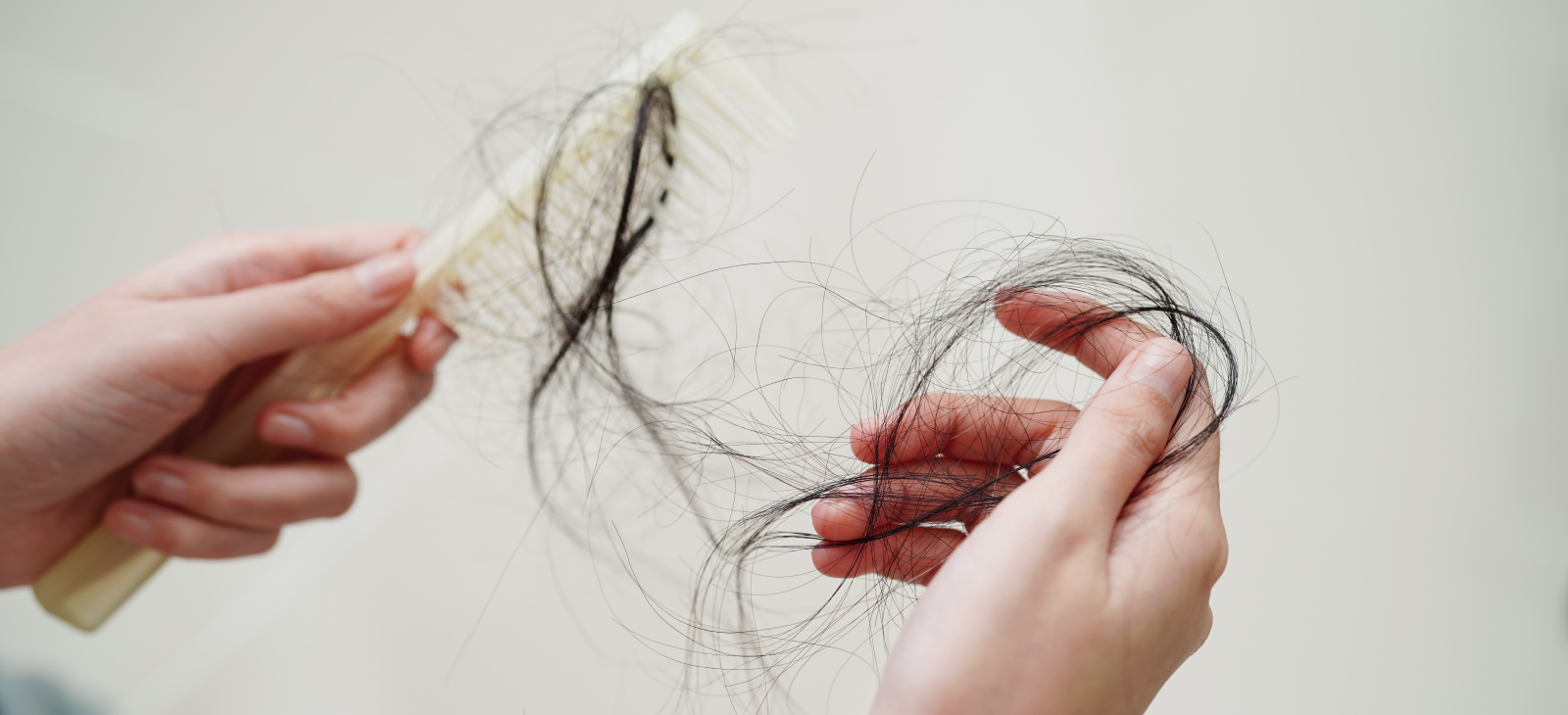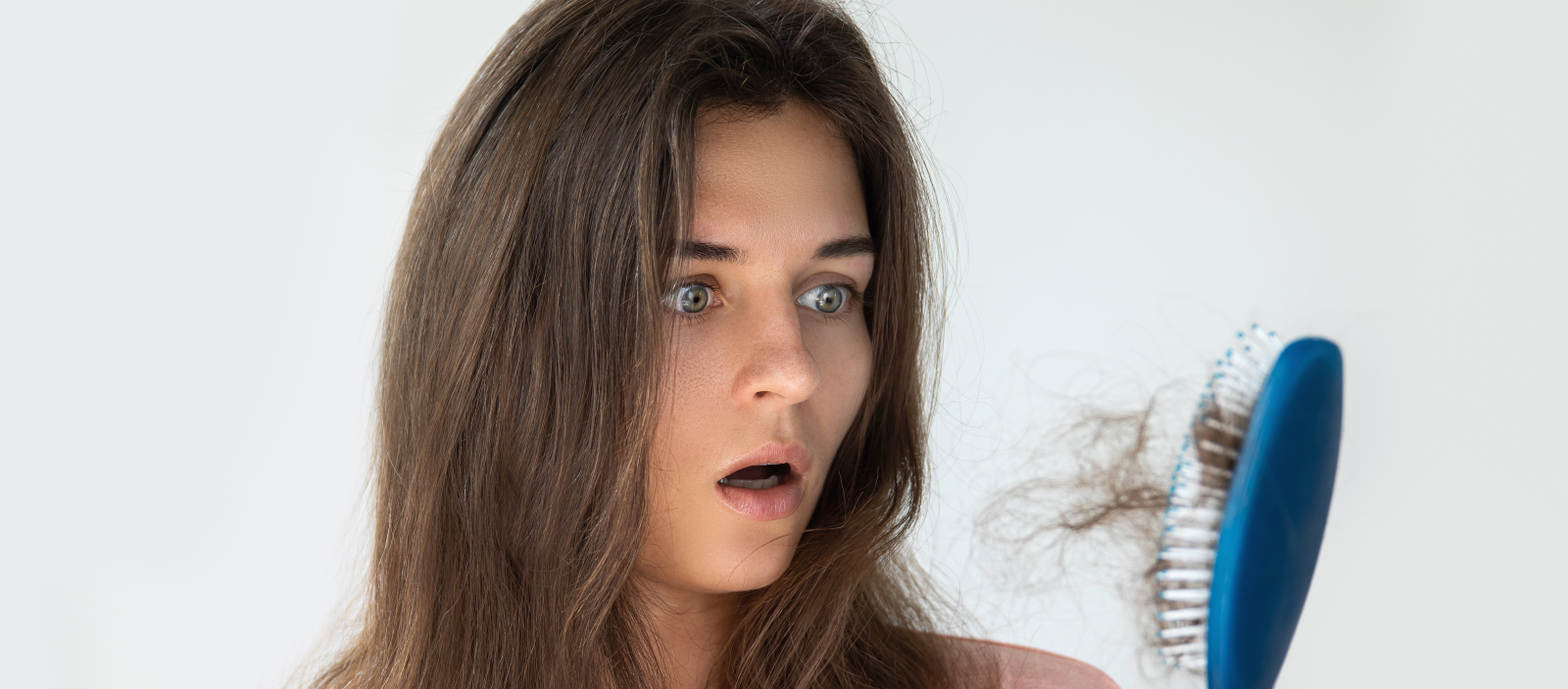When Should Hair Loss Be Taken Seriously?
The developing, resting, and transitioning phases of hair development can all be considered different stages. In normal conditions, 120 to 160 strands of hair can be lost per day. Itchy, flaky, red, and pus-filled bumps are all indications of abnormalities in the scalp, which may lead to significant hair loss. A visit to a hair loss clinic is highly suggested if you encounter any of these symptoms. Exploring advanced at home hair growth solutions such as stem cell hair growth products may help stimulate natural hair regeneration and improve scalp health.
There are a variety of factors that can contribute to hair thinning or hair loss, which are as follows:
Aspects of the Physical World
Thyroid issues, notably overactive or redundant thyroid activity, may result in hair loss. As well as allergic responses, underlying skin conditions, and scalp infections that can be bacterial and viral, it may also cause hair loss. Hair follicles might be stunted, and hair loss can occur as a result. Hair growth may gradually return to normal when the underlying problems have been recognized and remedied.
Medications and Supplements: How They Impact Hair Loss
Medications play a crucial role in treating various health conditions, but some can have unintended side effects, including hair loss. Acne medications, cholesterol-lowering drugs, artificial vitamins, immunotherapy treatments, chemotherapy, arthritis medications, and certain blood pressure drugs can all contribute to thinning hair. These medications may disrupt normal hair growth cycles, leading to excessive shedding or slowed regrowth.
Overconsumption of supplements and vitamins, especially those your body doesn’t require, can also trigger hair loss. High doses of vitamin A, for instance, have been linked to hair thinning. However, in most cases, hair growth tends to return to normal once these medications are discontinued. If you suspect a medication is affecting your hair, consult with a doctor before making any changes to your regimen.
Stress & Anxiety: The Silent Culprits Behind Hair Thinning
Your hair health is often a reflection of your emotional well-being. Chronic stress and anxiety can disrupt hair growth, causing increased shedding and breakage. Emotional distress can trigger telogen effluvium, a condition where hair enters the shedding phase prematurely, leading to noticeable thinning over time.
Physical stress from injuries, excessive heat styling, chemical treatments, and tight hairstyles can also weaken the hair structure. Frequent dyeing, perming, or straightening can lead to permanent hair loss in extreme cases. Additionally, overexertion from intense physical activities or frequent travel across different time zones can put strain on your body’s natural rhythm, impacting hair health.
Anxiety-induced hair pulling, also known as trichotillomania, is another factor that contributes to long-term damage. Many individuals unknowingly tug at their hair when stressed, leading to bald patches and weakened follicles. Seeking help from a hair specialist or therapist can provide strategies to manage anxiety and protect hair from further damage.
Diet: The Key to Strong and Healthy Hair
What you eat significantly influences the health of your hair. A poor diet lacking essential nutrients can result in hair thinning, breakage, and slow growth. Rapid weight loss or extreme dieting can deprive the body of key vitamins and minerals, leading to excessive shedding. Malnutrition weakens hair strands, making them prone to damage.
Iron is an essential nutrient for hair growth, commonly found in red meat, eggs, and dairy products. A deficiency in iron can lead to hair loss, brittle nails, and persistent fatigue. Incorporating a well-balanced diet rich in protein, healthy fats, and essential vitamins can strengthen hair follicles and improve overall scalp health. Hydration also plays a critical role, as dehydration can make hair brittle and prone to breakage.
Genetics: The Unavoidable Factor in Hair Loss
Genetics play a significant role in determining hair loss patterns. Male and female pattern baldness, known as androgenetic alopecia, is hereditary and affects a large percentage of the population. Around 50% of men and 70% of women will experience some form of genetic hair loss as they age.
Dihydrotestosterone (DHT), a derivative of testosterone, is the primary hormone responsible for hereditary hair thinning. It causes hair follicles to shrink gradually, leading to thinner strands and eventual hair loss. While genetics cannot be altered, several treatment options are available, including topical solutions like minoxidil, oral medications like finasteride, and advanced therapies like platelet-rich plasma (PRP) treatments or hair transplants.
Consulting a hair loss specialist can help determine the best treatment plan for your specific condition. Early intervention often yields better results, preventing further thinning and promoting hair regrowth.
Regular Checkups: Monitoring Your Hair Health
Hair loss can stem from various factors, including medical conditions, lifestyle choices, and environmental influences. Regular health checkups can help identify underlying causes and ensure you receive the right treatment before the condition worsens.
If you notice sudden or excessive shedding, persistent scalp irritation, or thinning hair, seek professional advice. A dermatologist or trichologist can assess your scalp health and recommend personalized treatments to restore hair vitality.
Taking proactive steps, such as maintaining a nutrient-rich diet, managing stress levels, and avoiding harsh hair treatments, can significantly improve hair quality. Prioritizing your overall health will ultimately lead to stronger, healthier hair in the long run.

Guide to treating hair loss
Hair Loss
What are the most effective treatments for hair loss?
Several treatments are available for hair loss, depending on the cause and severity. FDA-approved medications like Minoxidil (Rogaine) and Finasteride (Propecia) are commonly used to slow hair loss and stimulate regrowth. Minoxidil is a topical solution applied directly to the scalp, while Finasteride is an oral medication that blocks DHT, the hormone responsible for male pattern baldness. Advanced treatments such as Platelet-Rich Plasma (PRP) therapy, low-level laser therapy (LLLT), and hair transplants are also effective for restoring lost hair. Consulting a specialist can help determine the best treatment based on individual needs.
Can diet and lifestyle changes prevent or reverse hair loss?
Yes, a nutrient-rich diet can significantly improve hair health and reduce hair loss. Essential nutrients like iron, biotin, zinc, omega-3 fatty acids, and protein strengthen hair follicles and promote growth. Hydration is also crucial, as dehydration can lead to brittle, weak hair. Lifestyle changes such as reducing stress, avoiding excessive heat styling, limiting chemical treatments, and ensuring proper sleep can also prevent hair thinning. If hair loss is due to deficiencies or poor diet, adjusting nutrition can lead to noticeable improvements.
How long does it take for hair loss treatments to show results?
The effectiveness and duration of hair regrowth depend on the treatment used. Minoxidil typically takes 3 to 6 months before visible improvements appear. Finasteride may require at least 6 months to a year to show significant hair regrowth. PRP therapy usually requires multiple sessions, with improvements seen within 3 to 4 months. Hair transplants yield visible results after 6 to 12 months, as transplanted follicles need time to establish growth. Patience and consistency with treatment are essential for optimal results.
Are natural remedies effective for treating hair loss?
While natural remedies can support hair health, they are not always effective for severe hair loss conditions. Essential oils like rosemary, peppermint, and castor oil may stimulate hair growth when massaged into the scalp. Aloe vera and onion juice have been traditionally used to strengthen hair and promote regrowth. Scalp massages can improve blood circulation, nourishing the follicles. However, these remedies work best when combined with clinically proven treatments for more substantial results.
When should I see a doctor for hair loss?
Consult a dermatologist or trichologist if hair loss is sudden, excessive, patchy, or accompanied by scalp irritation, pain, or itching. If hair thinning is progressive and does not improve despite dietary and lifestyle changes, seeking professional advice is recommended. Early intervention is key, as some forms of hair loss can be reversible with prompt treatment, while others require long-term management. A doctor can diagnose the underlying cause and recommend personalized treatments to restore hair health.



